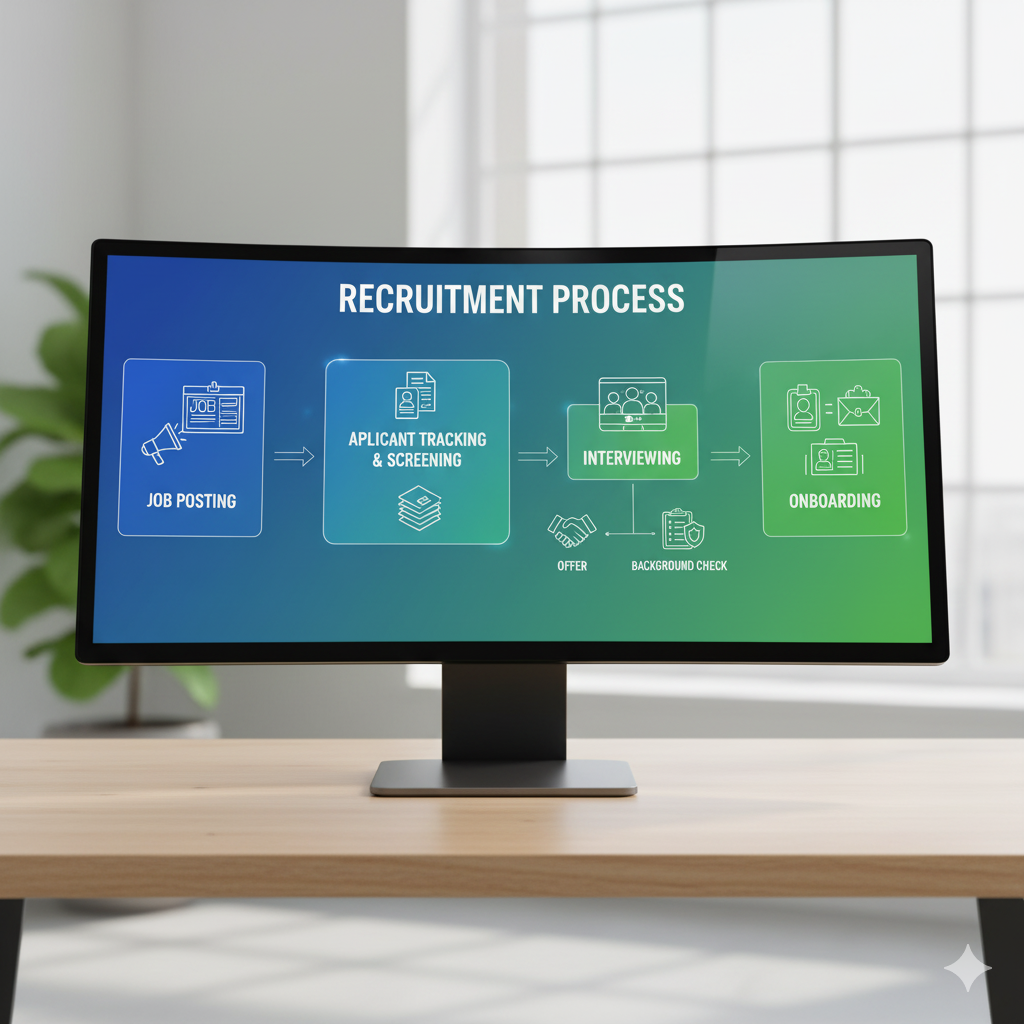Address
Kaypian, San Jose Del Monte City, Bulacan Philippines
Work Hours
Monday to Friday: 8AM - 6PM
Weekend: 10AM - 5PM
Address
Kaypian, San Jose Del Monte City, Bulacan Philippines
Work Hours
Monday to Friday: 8AM - 6PM
Weekend: 10AM - 5PM


Integrated HR. Accurate Payroll.


Integrated HR. Accurate Payroll.

Hiring top talent is one of the most critical tasks for any organization — yet, many HR teams struggle with slow, manual, and disjointed recruitment processes. Missed follow-ups, long approval cycles, and poor candidate experience often lead to lost opportunities.
This is where a Human Resource Information System (HRIS) can make a world of difference. Modern HRIS platforms are designed to simplify, automate, and optimize the hiring process — ensuring your recruitment team can focus on what really matters: finding and engaging the right people.
In this article, we’ll explore how an HRIS helps eliminate hiring bottlenecks and makes recruitment smarter, faster, and more effective.
One of the biggest challenges recruiters face is managing information scattered across spreadsheets, emails, and multiple job boards. An HRIS consolidates all candidate data, resumes, and communication into a single system.
No more searching through inboxes or spreadsheets — everything you need is at your fingertips.
Manually posting jobs to multiple platforms wastes time. With an HRIS, you can publish job openings across job boards, company career pages, and social media channels with a single click.
Many HRIS systems also include AI-powered resume screening, helping you quickly identify top candidates based on skills, experience, and keywords — significantly cutting down the time spent reviewing applications.
Hiring delays often happen due to slow decision-making and poor communication between HR, managers, and interview panels. An HRIS streamlines this by:
This keeps the process moving and ensures no candidate is left waiting too long.
Coordinating interview schedules manually can be a nightmare. Modern HRIS platforms integrate with calendars (like Outlook or Google Calendar) to automatically suggest available time slots for both candidates and interviewers — reducing back-and-forth emails and improving candidate experience.
An HRIS doesn’t just help you manage recruitment — it gives you valuable insights. You can track metrics like:
These insights help HR leaders optimize recruitment strategies and allocate resources where they deliver the highest ROI.
A slow and disorganized hiring process can damage your employer brand. With automated communication, faster response times, and a smooth application journey, HRIS ensures candidates have a positive experience — even if they aren’t hired.
Recruitment bottlenecks cost companies more than just time — they can lead to missed opportunities, frustrated candidates, and increased hiring costs.
By leveraging an HRIS recruitment module, organizations can automate repetitive tasks, streamline collaboration, and make smarter, data-driven hiring decisions. The result? A faster, smoother, and more effective hiring process that attracts top talent before your competitors do.